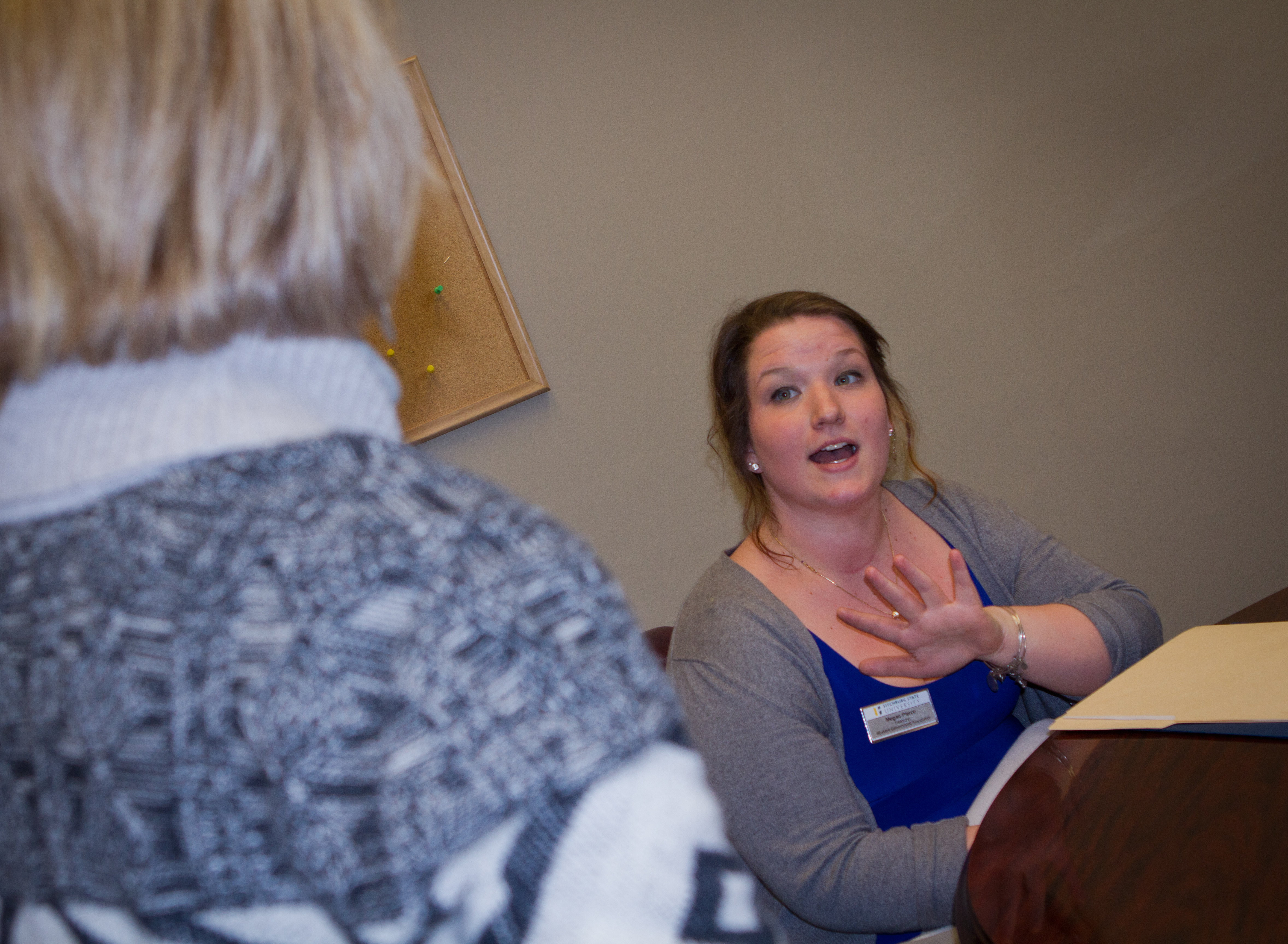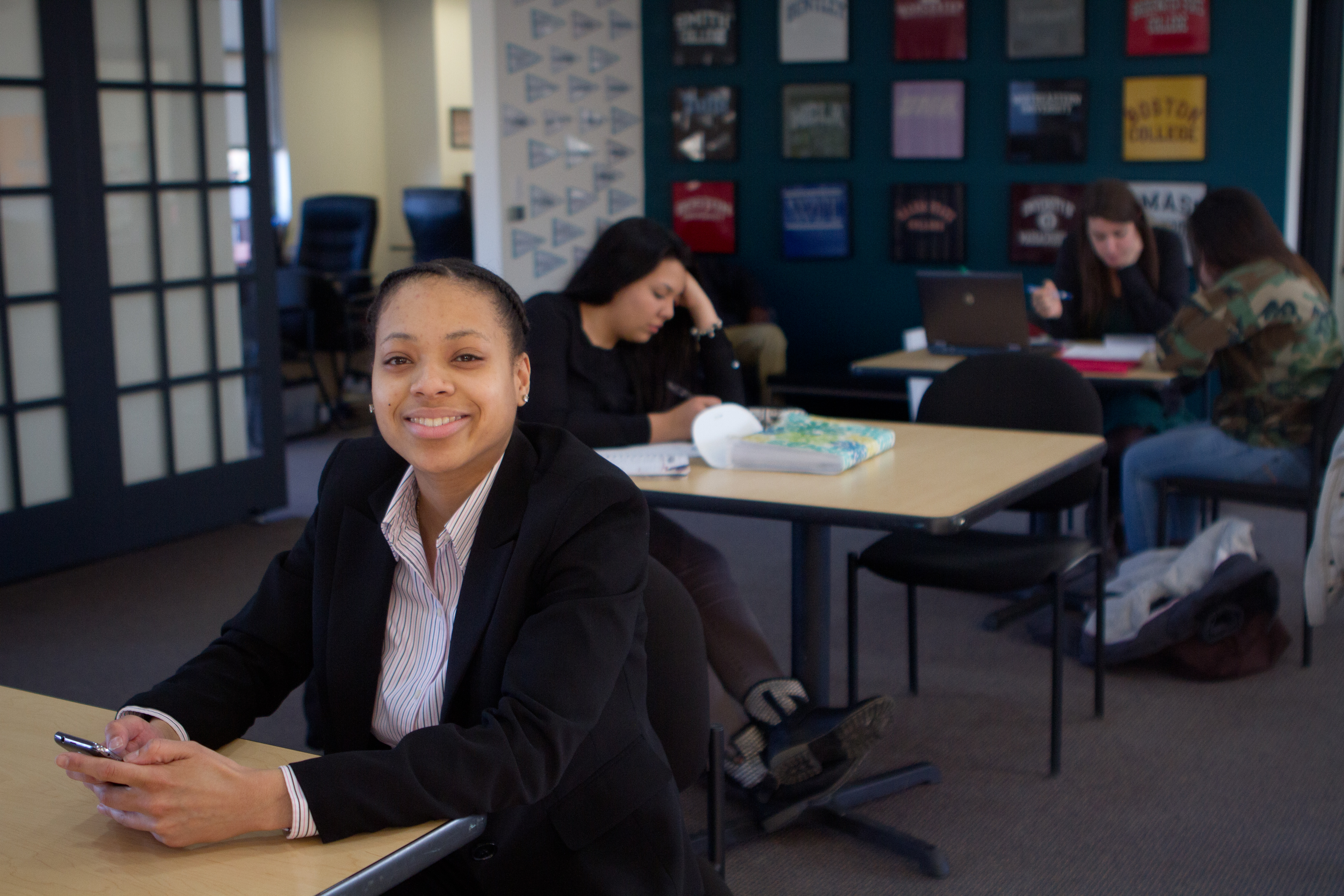
Megan Pierce, a student at Fitchburg State, met with the Chief of Staff for her local legislator during an advocacy day for higher education at the Massachusetts State House.
Under the golden dome, Megan Pierce of Rochester climbs the steps inside the Massachusetts State House and knocks on her representatives' door.
It’s that time of year when college-bound students are making tough choices about where they want to study and whether they can really afford it. It's no secret that the cost of college continues to increase, so understanding payment options is increasingly important for students like Pierce and others.
Pierce is at the State House, along with hundreds of other students, to urge their lawmakers to boost funding for public higher education.
“Today getting your masters degree is the new standard," Pierce said. "But if you have all these costs for your bachelors degree, how can you even think to go on?”
At 19, Pierce is a sophomore at Fitchburg State where she studies special education. She’s facing more than $30,000 in student loan debt. Her parents, who work in sales, are helping, but she’s shouldering most of the burden.
“I came to school not understanding the financial system – not understanding the loans that I was taking on," Pierce said. "Now I have friends who are seniors and I’m realizing more and more how much debt I’m going to be in once I graduate from college.”
Pierce is among the thousands of Massachusetts students with enormous student loan debt, debt that has continued to increase as states reduce funding of higher education. More and more, students are wondering whether their investment in higher education is worth it.
Mike Wasserman is executive director of the Boston-based nonprofit Bottom Line, which helps students understand their financial options and get into and through college.
“College is still the best investment you can make," Wasserman said.
Wasserman is passionate about increasing access for low-income and middle-class students. He used to work with a group of students in an urban debate league.
“It was clear to me that students in urban schools didn’t have the resources," Wasserman said. "They didn’t have role models that had been through the process, and I just saw students leaving when there was money on the table.”
At Bottom Line, students, like Nakia McKenzie of Mattapan, work one-on-one with counselors who help them fill out financial forms, get loans and refinance debt.

Nakia McKenzie had to transfer from St. Johns University because she couldn't affford the tuition.
McKenzie recently had to leave St. John’s University in Queens because she couldn't pay the $50,000 annual tuition.
“I had a little bit of a scholarship, but it was just a little bit; it’s really expensive there," McKenzie said. "I just wanted to go there and play basketball and leave home. That was it.”
This year, McKenzie took a full-time job as a security guard at Novartis in Cambridge, then enrolled as a part-time student at UMass-Boston. She would eventually like to manage a retail store, but right now she’s worried her $33,000 in student loan debt will hold her back.
“The debt that I have incurred now, I know I could have probably avoided it had I been more mindful or open to knowing that, ‘Hey, you can’t afford it you know?” McKenzie said. "I have a couple of friends now who have graduated and Sally Mae is knocking on their doors and they don’t know what to do because they’re having a tough time even finding jobs. And they have their student loans to pay and they’re just, freaking out.”
"Financial literacy is incredibly important," said Rachel Fishman, a policy analyst with the New America Foundation.
According to Fishman, most families don’t realize that the price that they’re going to pay is different from the sticker price listed on college websites.
“There’s differential pricing in higher education and students can be getting merit-based aid, grants, loans, and all of these factors have to be taken into account when making your college decision," Fishman said. "Many students aren’t able to do that right now, because it’s a really complicated concept.”
Back at the State House, Meghan Pierce regrets not doing her homework on student loans.
“I just thought public school, no big deal, I’ll get a financial package. I’ll get loans, I’ll pay them off eventually," Pierce recalled. "Now you’re in the middle of it and you’ve started to dig yourself into a hole that you really can't get out of.”
A hole that many college-bound students are hoping to avoid this admissions season.










